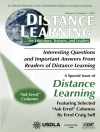What does it mean to be ageing in Chile as a migrant? What does it mean to be late middle-aged nowadays? How does living half of your life in a foreign country impact perspectives on later life? Is retirement an opportunity to go back to the home country? What will happen to the next generation, raised in a different country from their parents?
Based on 16 months of ethnographic fieldwork, Ageing with Smartphones in Urban Chile analyses the experience of ageing for Peruvian migrants aged around 60, who have lived in Chile for over 20 years. Their lives are informed by a series of experiences of being in between. They live between two countries, two generations (their Peruvian parents and their Chilean children), two different stages in life (retained youth and menacing old age), between giving care (to their parents) and not wanting care (from their children) and between a continuing legacy (through their children, who have a promising future) and not transmitting legacy (some traditions will not pass on to the next generation).
Peruvian migration has been one of the most studied in Chile. However, neither the experience of ageing of migrants in Chile nor the experience of late middle age has been fully addressed yet. By focusing on the entanglement of ageing, migration and technology, this monograph is an ethnographic contribution to an unexplored subject in the vast literature on migration studies in Chile.
Table des matières
List of figures
List of abbreviations
Series foreword
Acknowledgements
1 Introduction
2 The experience of ageing: between retained youth and early frailties
3 Everyday life: the invisible point of no return
4 Social relations: intensified Peruvian sociality abroad
5 Crafting the smartphone: keeping up through digital bridges
6 Health and care: in between dynamics of care
7 The devotion of Peruvian migrants
8 Life purpose: work, family and sacrifice
9 Conclusion: the sacrifice of continuity
Bibliography
Index
A propos de l’auteur
Alfonso Otaegui is Assistant Professor at the Anthropology Department of the Pontifical Catholic University of Chile. He completed his Ph D in Social Anthropology and Ethnology at the École des Hautes Études en Sciences Sociales (EHESS).












